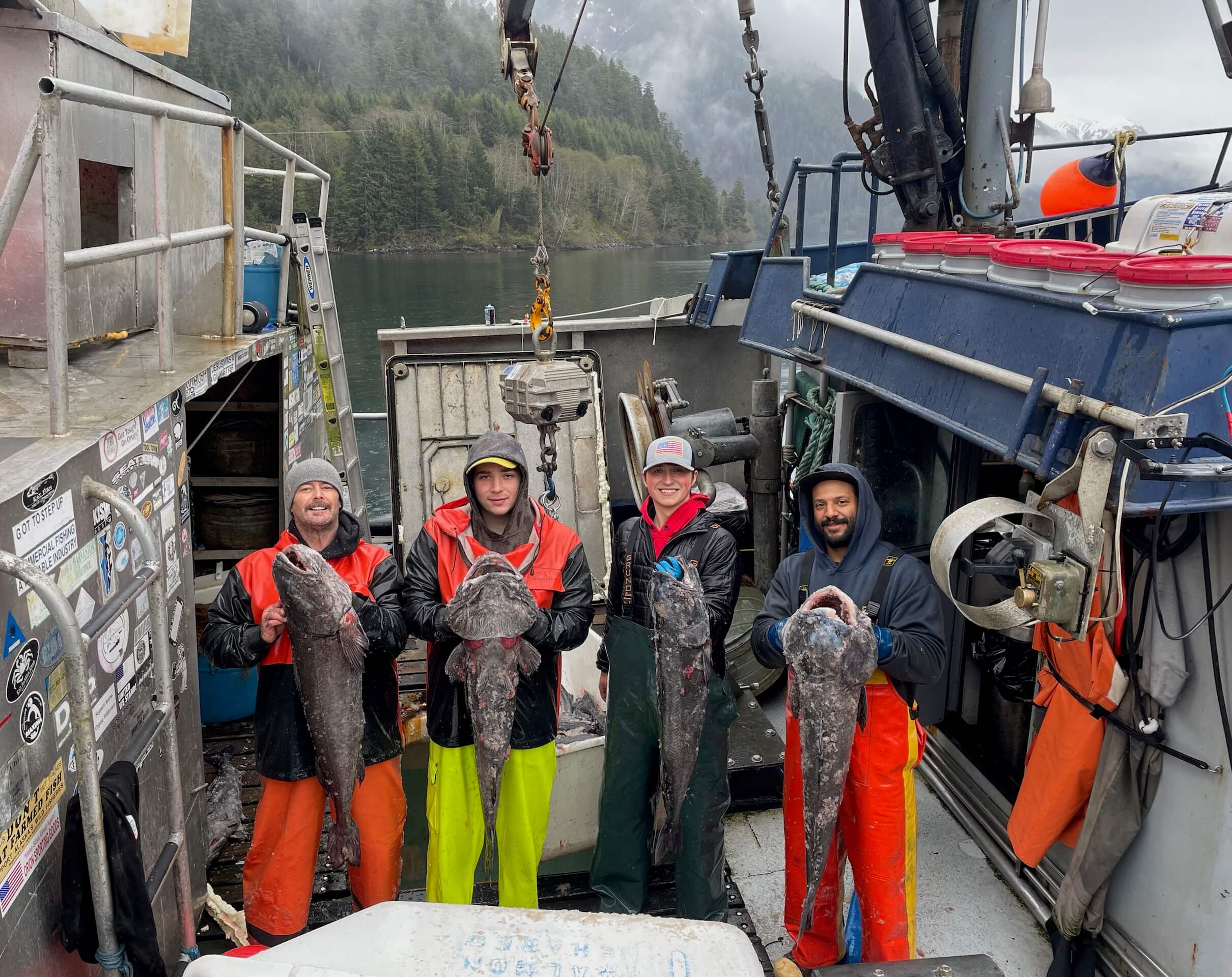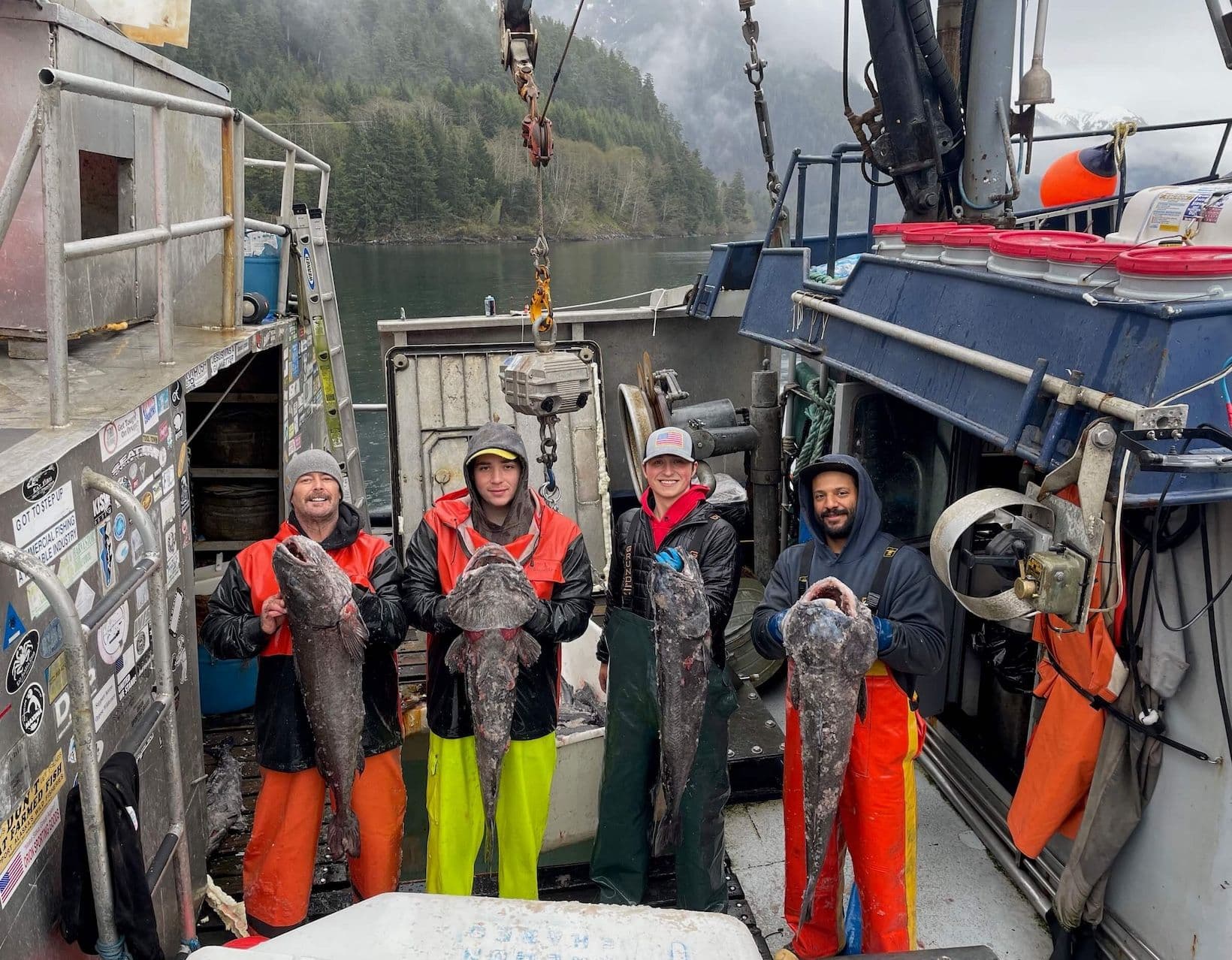Sablefish season is upon us!
As Sitka emerges from its winter slumber, the longline fleet is busy preparing for the start of their season. The Alaska sablefish (commonly known as black cod) fishery kicked off in mid-March and runs through November. Throughout the spring, longliners are hard at work in the harbor, with crews diligently baiting thousands of hooks, all in hopes of landing a bounty of black cod.
To catch these deep-dwelling, oily fish, longliners venture to the edge of the continental shelf, where they set their gear at depths ranging from 1,200 to 3,000 feet. This prime fishing zone, colloquially dubbed “the cod edge” by local fishermen, is closer to Sitka than many other Alaskan ports. This proximity ensures that the fish reach the processing plant for filleting and freezing while still in their freshest state. Sitka is known throughout the seafood industry as having some of the highest quality black cod.
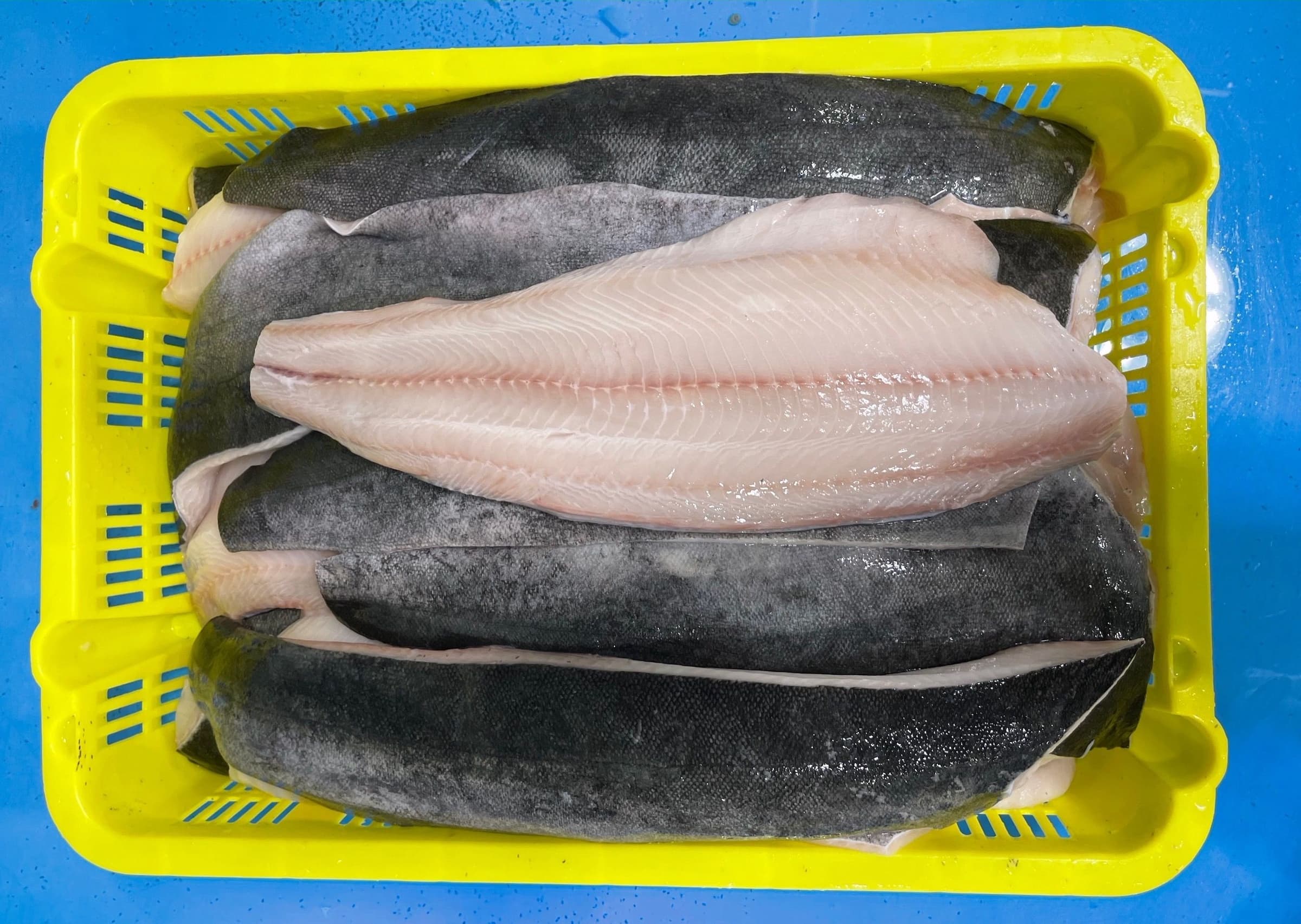
Despite the 8-month season and the hundreds of miles of habitat, competition along “the cod edge” is fierce. The best spots mean you catch larger fish that are more prized and receive a higher dock price. The first boat to lay down its gear often enjoys their best catch of the entire season. A successful longline trip can haul in loads of up to 30,000 pounds, filling their boat if they hit the right spot. However, as the season progresses, fishing tends to slow down. Those with substantial quotas — often over 100,000 pounds — must start early and fish diligently throughout the spring before the grounds stop yielding big catches. Waiting too long can lead to low crew morale, increased trips, and the risk of overlapping with the summer salmon season.
Over the past decade, an exciting adaptation has emerged in the sablefish fishery, showcasing the sustainability and conservation efforts of our fishermen. Sperm whales have long been a challenge for the black cod fleet, homing in on longliners’ catches. As boats pull in their lines, pods of these whales take turns devouring the fish, forcing fishermen to abandon productive areas. The situation escalated as more whales discovered this convenient food source. After years of experimentation with various deterrents, a navigable solution was found: the introduction of traps, or pots. These pots, similar to those used for crabbing or lobster fishing, effectively prevent whales from snagging the catch. Now, the Sitka fleet employs a combination of pots and longline gear, resulting in a significant decrease in whale predation each year.
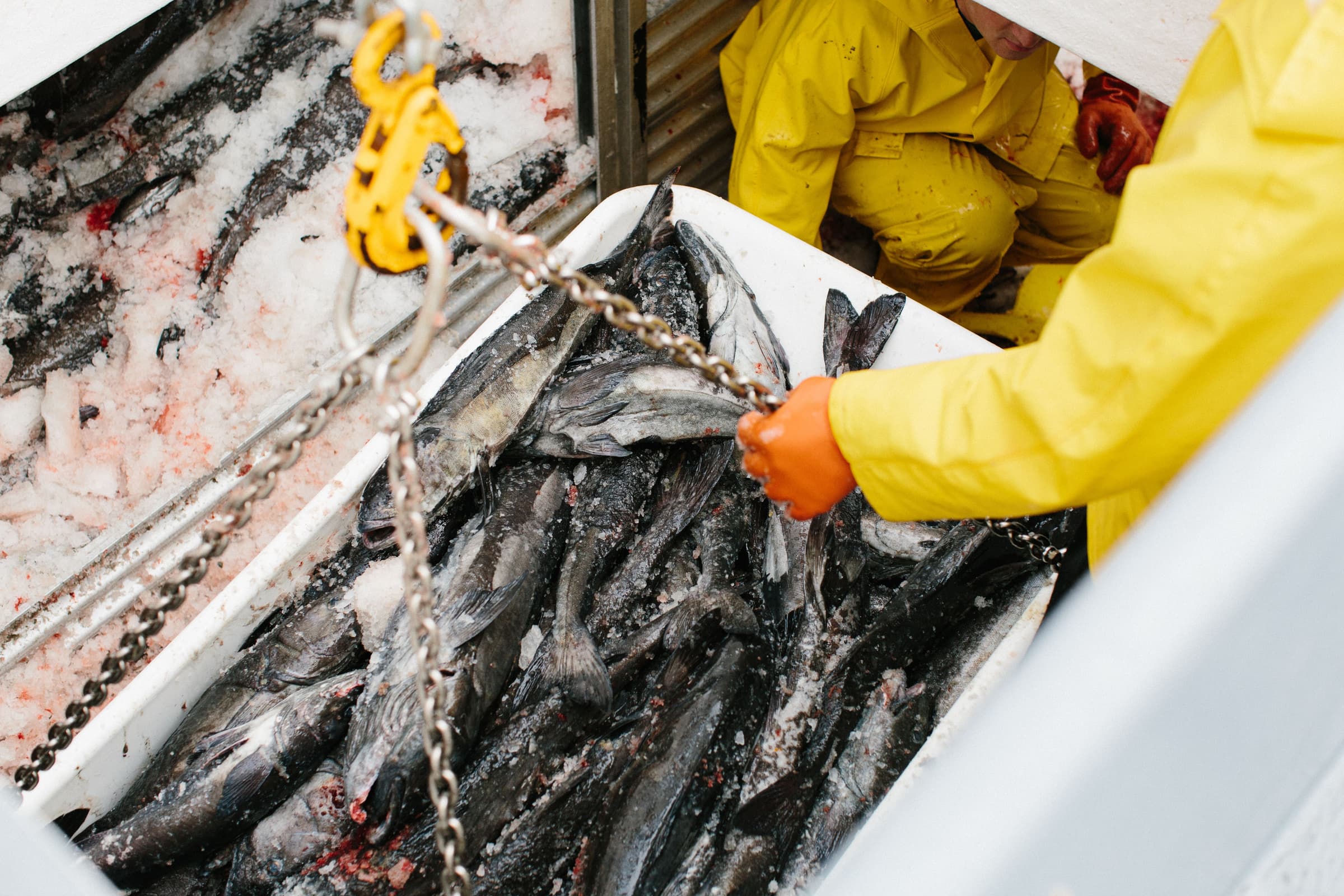
Fishing with pots brings the added benefit of reducing bycatch and the amount of time needed to bait longline gear. The days spent baiting hooks is usually equal to the time spent fishing so pots mean less grueling work for crews and more time fishing. Rockfish, the primary bycatch species when targeting black cod, are caught in significantly lower numbers — up to 80% less — when using pots. This evolution in fishing practices not only protects the fishermen’s catch but also supports the health of the marine ecosystem, which is a true win-win for our Sitka fleet. Enjoy your next buttery black cod dinner with a little more knowledge of why it’s so special.
To connect you to the people behind your fish we asked one of our original fisherman and longliner extraordinaire, Stuart Weathers, some questions about his season.
Fisherman Q and A with captain Stuart Weathers of the F/V El Tiburon
How is your longline season starting off?
Really good. We had a long stretch of good weather to start the season and that rarely happens. The black cod are bigger this year and the price has gone up for some of the size grades. Bigger trips for more money, I can’t complain about that! We haven’t started fishing halibut yet, but I have much more black cod to catch so I’m feeling good that we have put some pounds in the boat. There are some strong year-classes of fish that are getting bigger each year and I’m happy when I find bigger fish. (Fisheries scientists refer to all of the fish of any species hatched during one annual spawning period as a year-class.)
How has using pots changed your operation? Does it keep your crew happier?
It’s been a game changer switching to pots instead of baiting hooks for black cod. My crew and I used to spend 3 long days baiting gear and then if the weather turned bad we had to hope our bait didn’t spoil before we could go fishing. Now my crew can bait the pots as we are setting them. We use about half the bait as before and get less rockfish bycatch. It’s been great all around. I started with some pots and some longline gear and it was apparent right away that pots were the way to go. We had a pod of sperm whales on the last trip that just checked our gear out and swam away. That could have been really bad had we had a bunch of hooks out.
The crew morale is really high because they don’t have to bait as much and we can catch more fish efficiently. They are really stoked on the whole program.
What are your biggest challenges and how are you feeling about the future of the black cod fishery?
The biggest challenge I face is when the fish price is low and we are catching small fish. The price goes down pretty quickly for each size of black cod and for a while there were a lot of smaller fish. Some years, like 2024, we had good fishing but the price was low and we had way smaller fish. We’re catching bigger fish this year and the price is going up a bit, which means we are making 30-40% more per trip. That is huge for us.
I’m feeling really good about the future of the fishery since the year-classes of fish are getting bigger and it seems like markets are improving for the first time in a few years. It’s cool to see more and more people learning about how good black cod is like the Japanese have known for a long time.
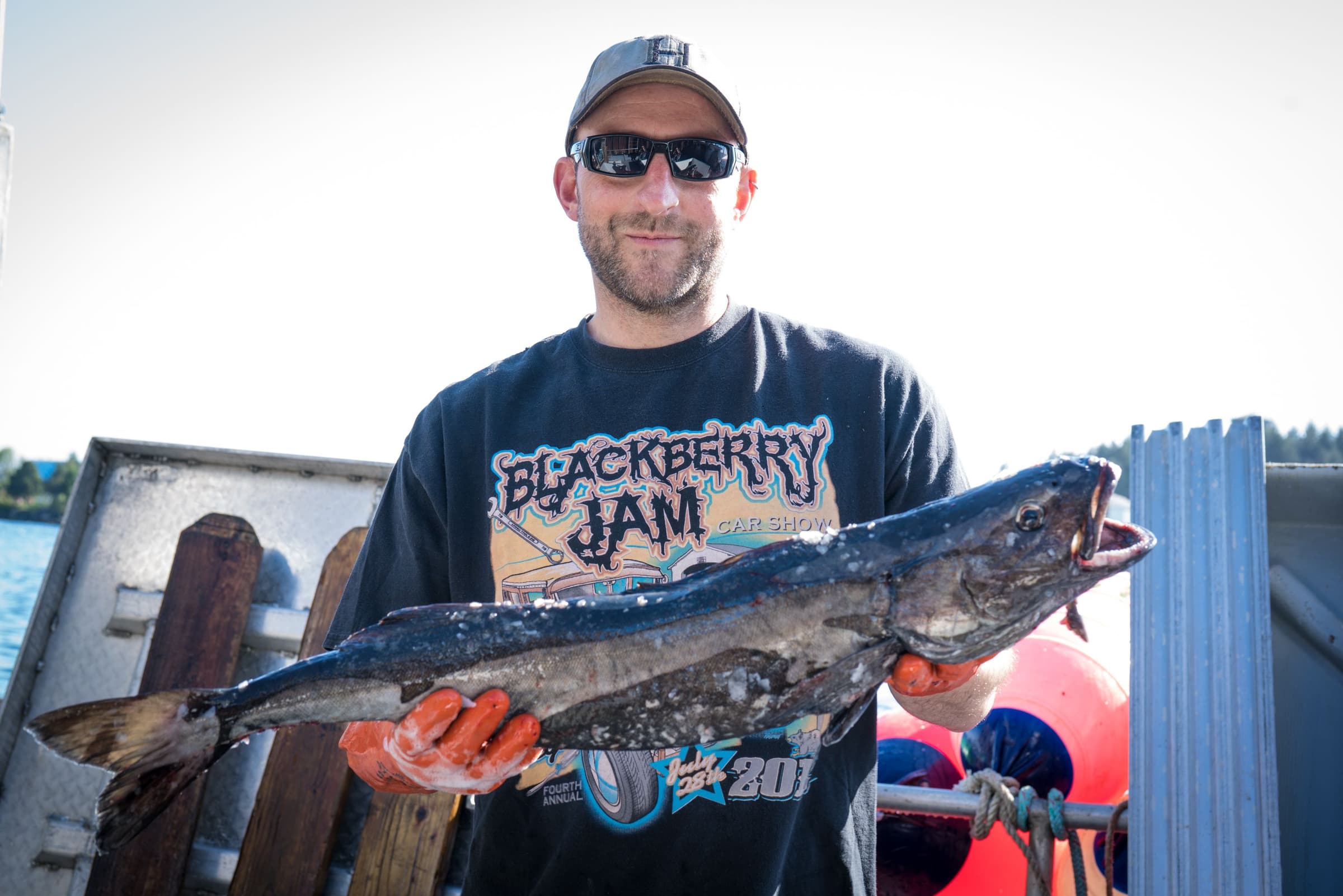
Thanks for your time Stu!

